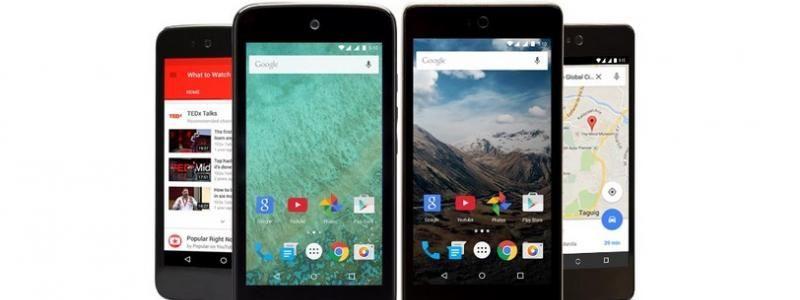The Android One Initiative: Pushing For More Affordable Handsets In Emerging Mobile Markets

During its I/O Conference held in San Francisco, Google once again emphasized its push for cheaper mobile devices in emerging mobile markets around across the globe. The search giant believes that emerging markets have the greatest potential of growth. It even stated that it is expecting 1.2 billion units of smartphones to be sold in emerging markets such as China, India, Brazil, Mexico, Russia, and Indonesia. And for sure, a significant chunk of this number will be handsets that are powered by Android, the mobile operating system that Google itself developed.
In last year's I/O Conference, Google first introduced a program called the Android One initiative. In this initiative, a plan is being offered to various mobile manufacturers in order to produce more affordable mobile devices that run on the most recent version of the Android mobile operating system. This year, the company is reiterating the need to make mobile devices more accessible to all parts of the world, including countries wherein most of its consumers are first time smartphone users.
It is no secret that Google has always been keen on making information available to all. It is already the undisputed king when it comes to search, and maybe even online advertising. And now it wants to tackle regions of the world wherein information is not that accessible, at least in comparison to Western markets. The key to doing this -- mobile phones, specifically those that are powered by Android.
For most people in emerging markets, owning a smartphone for the first time is akin to owning their first personal computer. Through their mobile device, they can surf the Internet, google information, and log in to social media websites. Google feels that if it can push for more affordable mobile devices in these regions, it can make all kinds of information more accessible to more people.
This is where the Android One initiative comes in. And it is not only about cheaper smartphones, but also bringing the Android experience to mobile users in these emerging markets. Sure, Android smartphones have already hit emerging markets for years, but they often run on old versions of the Android OS, which means mobile users in these regions do not have access to the latest services that Google can provide.
To fix this, the Android One initiative offers a new approach -- deploying a stock version of the Android OS, a generic, unmodified version that does not carry any special technical or UI elements that phone makers like Samsung or LG often incorporate in the software.
Google introduced its first Android One phones back in September of last year in India. It has since expanded the program to Turkey, Indonesia, and the Philippines.
Related Blog Articles
- Apple’s New Music Streaming Service To Debut Next Week At $10 A Month
- Customer Satisfaction Level With Wireless, Web, TV Services Lowest In 7 Years, Per Survey
- Huawei Introduces Its P8 Lite Smartphone To US Consumers
- Your Guide To Understanding AT&T Next Early Upgrade Plans
- iHeartRadio Now Has 70 Million Registered Users
- Mobile Users Watch Longer Videos On Their Smartphones, Per IAB Survey
- FCC to Vote on Broadband Stipends for Low-Income Families
- Your Guide To Apple Music
- Facebook Introduces Buy Buttons For Shopify Retailers On News Feed
- Federal Court Denies Request By Industry Groups To Delay Net Neutrality Rules
Related Blog Posts
- Caller ID feature coming to all devices with Google’s Phone app
- Caller ID feature coming to all devices with Google’s Phone app
- Here are the devices that LG will update once it stops its mobile business
- Apple & Google’s Exposure Notification Technology for COVID-19 is ready for use
- Steam to launch apps for streaming videos and games to Android and iOS devices


 Menu
Menu